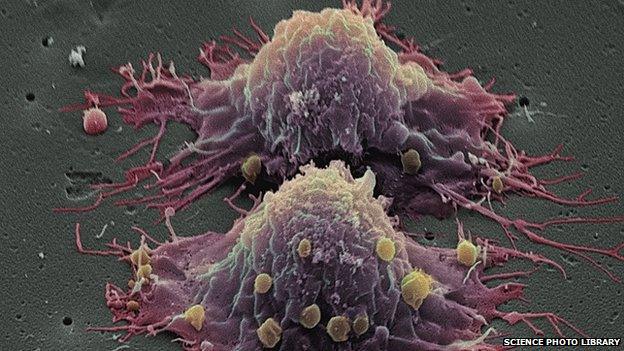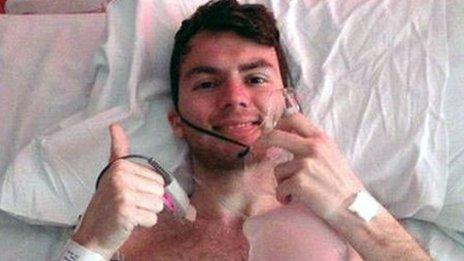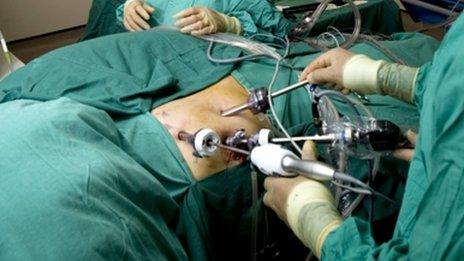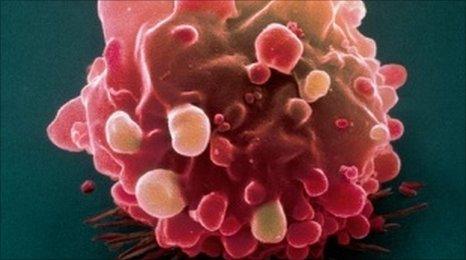A new technique for detecting bowel cancer to be trialled in parts of Scotland
- Published

Most cases of bowel cancer can be treated successfully if detected early
A new technique for detecting bowel cancer is to be trialled in parts of Scotland.
About 20,000 patients in Tayside, Fife, Grampian and Glasgow health board areas will be offered "scope screening", an examination using a tiny camera.
The 15-minute procedure can detect polyps that could eventually become cancerous.
Bowel cancer is the third most common form the disease in Scotland with 4,000 cases diagnosed each year.
Men and women aged about 60 will be invited to take part in the pilot which, if successful, will be rolled out across Scotland.
The technique allows medics to see the lower part of the large bowel.
Samples are taken if they identify any abnormal areas.
Scope screening has had similar trials in other parts of the UK.
It will run alongside the existing screening programme which involves home testing kits
Early detection
One man who was given the all-clear after an early detection of bowel cancer is encouraging others to get checked.
John Withers, 65, was diagnosed with cancer three years ago after taking part in the current screening programme.
He said: "I would not have known that I had bowel cancer until it was very advanced if it hadn't been for the screening programme."
Retired engineer Mr Withers underwent successful surgery at Dumfries and Galloway Infirmary less than a week after his diagnosis.
He added: "There is no doubt that the bowel screening programme saved my life.
"I am glad to see that bowel scope screening is now being offered to people in Scotland and would advise anyone asked to take part in this programme to do so - it could save your life.
"Cancer is not as scary as it once was and it can be very treatable so don't put off taking the test."
Health Secretary Alex Neil said the level of participation in the pilots would be analysed before deciding whether to extend the programme.
He said: "We know that nine out of 10 people will survive bowel cancer if it is detected early.
"What's more, bowel cancer is one of the most preventable cancers, especially when it's caught early, and screening helps us to do exactly that."
- Published14 May 2014

- Published10 May 2014

- Published5 March 2011
